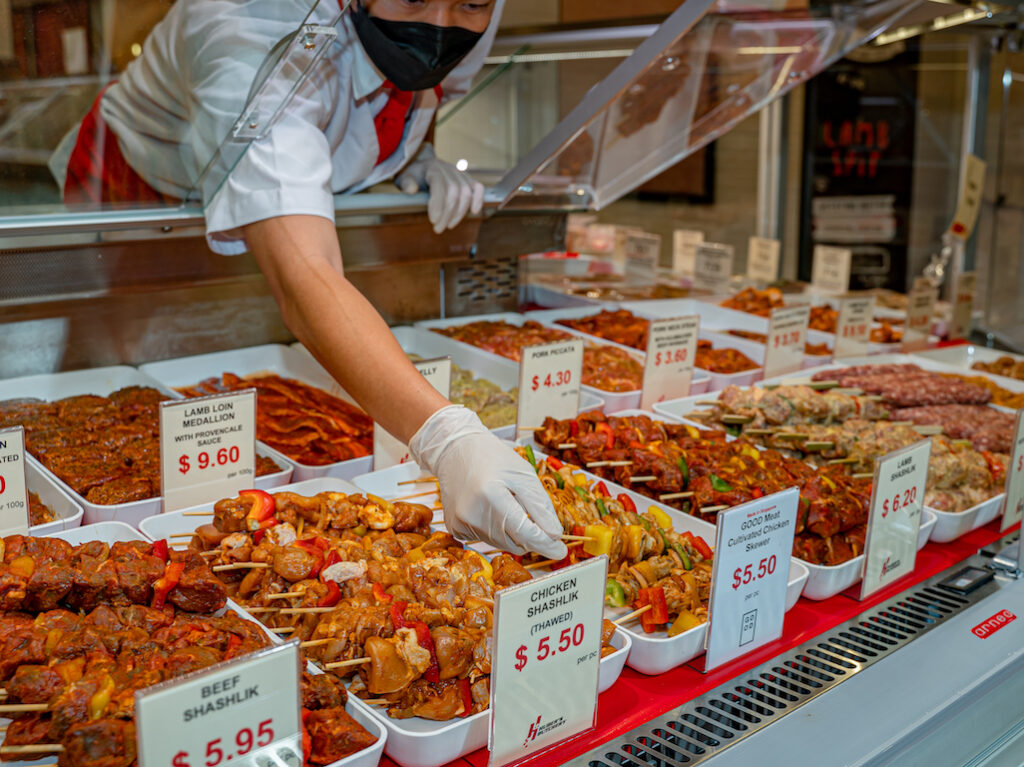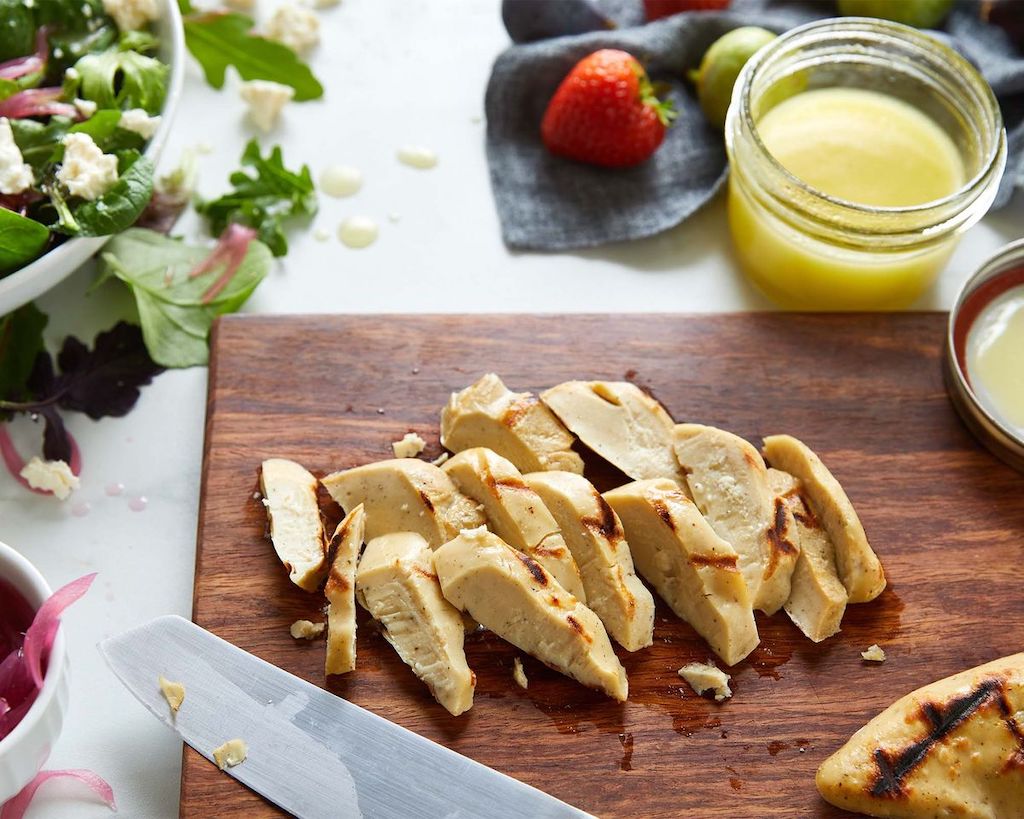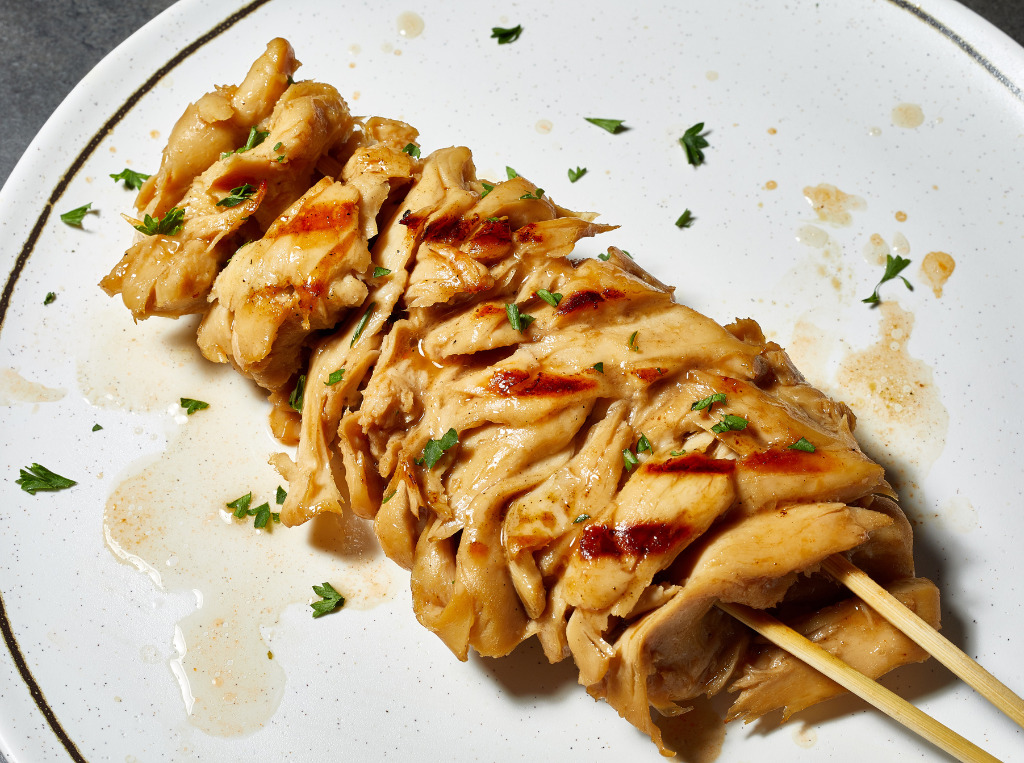4 Mins Read
Cultivated meat can be considered halal if it meets certain criteria, according to three Shariah scholars who advised alt-protein leader Eat Just on the matter. The company, whose subsidiary GOOD Meat became the world’s first cultured meat producer to get regulatory approval in 2020, says it will work along these guidelines to make its cell-based chicken halal-certified.
Halal diets refer to the consumption of food in accordance with Islamic law. In terms of meat, this means animals must be slaughtered in a prescribed way, and certain types of meat and byproducts – including pork and blood products – are prohibited.
Making cultivated meat halal-certified could be a giant step toward the widespread acceptance and adoption of these foods. Halal consumers represent 25% of the world’s population, and the Halal meat market is estimated to grow by 7% annually to reach $375B in 2031. Additionally, research has found that Muslims want to see Halal certification – particularly from their own country’s authorities – to be confident in consuming alt-meat products.
Criteria to make cultivated meat halal-certified

The Shariah opinion comes from Sheikh Abdullah AlManea, Professor Abdullah al-Mutlaq and Professor Saad Al-Shathry – three widely respected scholars from Saudi Arabia. They reviewed documents prepared by GOOD Meat and attorneys describing how its cultivated chicken is produced, detailing how the cells are sourced and selected, the ingredients fed to the cells to stimulate growth, how the cells are harvested, and how finished products are manufactured.
The scholars concluded that cultivated meat, in general, can be halal if it meets the following criteria:
- The cell line is from an animal that’s permissible to eat, like a chicken or cow.
- The animal the cell line is extracted from is slaughtered according to Islamic law.
- The nutrients fed to the cells are permissible to eat, and don’t include any forbidden substances like spilled blood, alcohol or materials extracted from improperly slaughtered animals, or pigs.
- The cultivated meat is edible and does not harm human health, and this is confirmed by specialists, like a country’s food regulatory agency.
Eat Just confirmed to Green Queen that this means cultivated pork still won’t be considered halal, as the Quran prohibits the consumption of meat derived from pigs in Islamic culture. It also means that cultivated meat made from the controversial fetal bovine serum (FBS), which breaches Halal guidance as it’s derived from the blood of unborn calves, cannot be considered halal.
GOOD Meat’s chicken cell line and production process – which have been approved in Singapore and the US – don’t currently meet the halal criteria laid out by the Shariah scholars. Its cultivated chicken isn’t FBS-free yet, but in January, it received the world’s first regulatory approval for serum-free media in Singapore.
The company confirmed that it’s now working on an amendment to its FDA approval for the same, adding that GOOD Meat’s R&D operations have been “free from animal-derived nutrients for over three years”. It will now take these guidelines into consideration to meet halal guidelines for its cell-culture products.
The importance of halal for cultivated meat

A poll commissioned by GOOD Meat last year found that a vast majority of consumers in six Middle Eastern countries – areas with large Muslim populations – would buy cultivated meat and transition from conventional counterparts, as long as it was halal, cost-competitive, and tasted the same as traditional meat.
“If cultivated meat is to help address our future food system needs, it has to be an option for the billions of people around the world who eat halal,” said GOOD Meat co-founder and CEO Josh Tetrick. “This landmark ruling provides much-needed clarity on how to ensure that is achieved. All companies should work to build a process to meet these guidelines.”
In a study published in July, Professor Cother Hajat and Dr Sophie Attwood wrote: “Muslim consumers recognise additional potential benefits of cultivated meat for the Halal economy, both in terms creating new jobs for halal meat scientists, as well as helping to grow Muslim-owned food businesses. Greater adoption of cultivated meat may also be viewed by some Islamic jurists and Halal consumers as a step toward Khilafa (guardianship of nature) [Quran 10:14], which is an important principle related to environmental sustainability.”
“More than a billion people around the world adhere to halal food standards, so for cultivated meat to make the leap from novelty to the norm, it is crucial that there are viable pathways to achieve this certification,” said Mirte Gosker, managing director of alt-protein think tank the Good Food Institute APAC. “Building a truly inclusive, efficient and secure protein production system requires making high-quality, nutrient-rich and culturally relevant foods available to every facet of society.”




